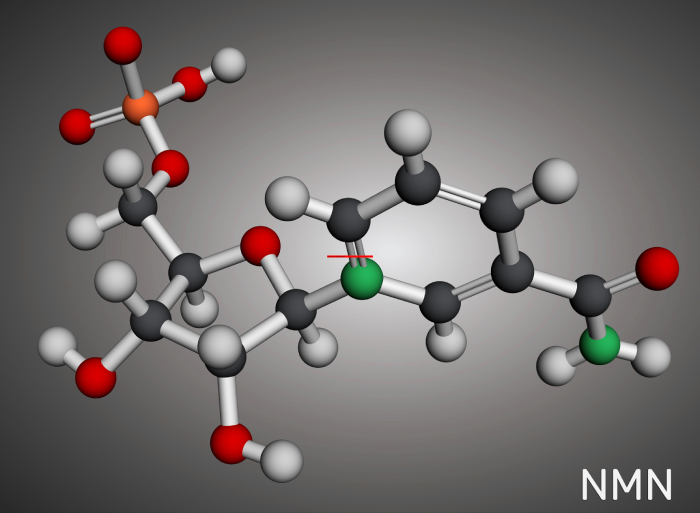A New Treatment Option for Metastatic Hormone-Sensitive Prostate Cancer: Insights into NUBEQA®’s Expanded Indication
Bayer has announced that the U.S. Food and Drug Administration (FDA) has accepted its supplemental new drug application (sNDA) for NUBEQA® (darolutamide) in combination with androgen deprivation therapy (ADT) as a treatment for metastatic hormone-sensitive prostate cancer (mHSPC). NUBEQA is already approved for use in adult patients with mHSPC when combined with docetaxel and for non-metastatic castration-resistant prostate cancer (nmCRPC).
Christine Roth, Executive Vice President at Bayer, expressed that the company is committed to meeting the needs of prostate cancer patients across various disease stages. The acceptance of the sNDA brings Bayer one step closer to providing an additional treatment option for those living with mHSPC. If approved, the new indication would allow for NUBEQA to be used both with and without chemotherapy, offering greater flexibility for physicians and patients. Bayer is working closely with the FDA to bring this treatment option to market as quickly as possible.
This sNDA application is supported by the positive outcomes of the Phase III ARANOTE trial, the results of which were presented at the 2024 European Society for Medical Oncology (ESMO) Congress and published in The Journal of Clinical Oncology.
Commentary by YourDailyFit columnist Alice Winters

Bayer’s announcement regarding the FDA’s acceptance of the sNDA for NUBEQA in combination with ADT signals a promising potential expansion in prostate cancer treatment options, particularly for metastatic hormone-sensitive prostate cancer (mHSPC). NUBEQA, a nonsteroidal oral androgen receptor inhibitor (ARi), has shown significant efficacy in earlier-stage prostate cancer treatments, and the possibility of broadening its use without chemotherapy adds an intriguing dimension to its clinical utility.
Efficacy and Trial Data
The Phase III ARANOTE trial that underpins this submission is pivotal in understanding the drug’s expanded utility. NUBEQA’s previous success in treating non-metastatic castration-resistant prostate cancer (nmCRPC) was a significant milestone, and the shift to metastatic hormone-sensitive prostate cancer (mHSPC) will be closely scrutinized by both clinicians and patients alike. Given that mHSPC is a more aggressive stage of prostate cancer, the importance of additional treatment options cannot be overstated. The data presented at the 2024 European Society for Medical Oncology (ESMO) Congress and later published in The Journal of Clinical Oncology will likely offer greater clarity on how NUBEQA enhances outcomes when combined with ADT, potentially providing improved survival rates or quality of life compared to current standard treatments.
The Role of Androgen Deprivation Therapy (ADT)
The combination of NUBEQA with ADT also offers a significant clinical advantage. ADT, which lowers testosterone levels to slow prostate cancer progression, is a cornerstone of treatment for prostate cancer, especially in its early to intermediate stages. By pairing NUBEQA with ADT, the treatment addresses not only hormone sensitivity but also targets androgen receptors, which can drive cancer cell growth. This dual approach makes the regimen more comprehensive, tackling the disease from multiple angles. Importantly, NUBEQA has already demonstrated favorable safety and efficacy profiles, which positions it as a potentially valuable addition to the treatment landscape for mHSPC.
Implications for Patient Treatment
Bayer’s statement on expanding the use of NUBEQA to include both chemotherapy-dependent and chemotherapy-independent treatment regimens speaks volumes about their commitment to offering flexibility in clinical settings. While chemotherapy is often an effective treatment for mHSPC, it comes with a range of side effects that can significantly impact patient quality of life. The availability of an oral option like NUBEQA without chemotherapy could offer patients a less invasive treatment path, with fewer side effects and greater convenience. This would be a welcome alternative for patients who are not suitable candidates for chemotherapy or prefer a less intensive regimen.
Market Positioning and Brand Strategy
Bayer’s approach to developing and broadening NUBEQA’s indications aligns with the company’s broader strategy of focusing on unmet needs in oncology. With prostate cancer remaining one of the most prevalent cancers globally, the company is positioning itself as a leader in cancer therapeutics, particularly in the prostate cancer segment. However, Bayer faces competition from other major players in the androgen receptor inhibitor space, such as Johnson & Johnson’s Erleada (apalutamide) and Astellas’ Xtandi (enzalutamide). As such, the expansion of NUBEQA’s indications represents a strategic move to differentiate the brand and establish it as a key player in both metastatic and non-metastatic prostate cancer treatments.
Conclusion
In conclusion, the FDA’s acceptance of Bayer’s sNDA for NUBEQA in combination with ADT is a positive development for prostate cancer treatment, especially for those with metastatic hormone-sensitive prostate cancer. The dual action of androgen receptor inhibition and androgen deprivation therapy could provide a meaningful benefit for patients who need more options in managing this aggressive disease stage. The upcoming data from the ARANOTE trial, particularly around efficacy and side effects, will be crucial in determining how this treatment option fits within the current standard of care for prostate cancer.



